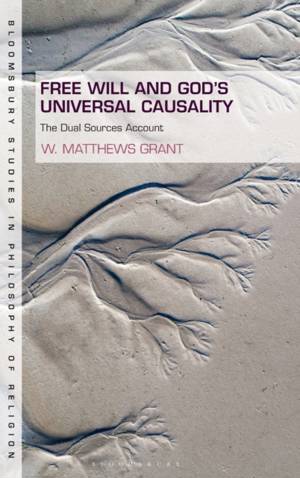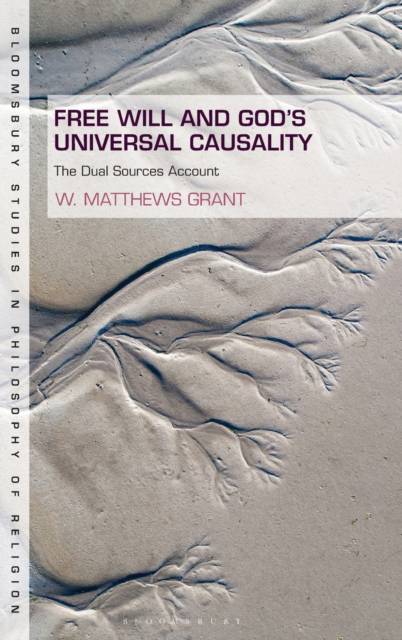
- Afhalen na 1 uur in een winkel met voorraad
- Gratis thuislevering in België vanaf € 30
- Ruim aanbod met 7 miljoen producten
- Afhalen na 1 uur in een winkel met voorraad
- Gratis thuislevering in België vanaf € 30
- Ruim aanbod met 7 miljoen producten
Zoeken
€ 271,45
+ 542 punten
Omschrijving
The traditional doctrine of God's universal causality holds that God directly causes all entities distinct from himself, including all creaturely actions. But can our actions be free in the strong, libertarian sense if they are directly caused by God?
W. Matthews Grant argues that free creaturely acts have dual sources, God and the free creaturely agent, and are ultimately up to both in a way that leaves all the standard conditions for libertarian freedom satisfied. Offering a comprehensive alternative to existing approaches for combining theism and libertarian freedom, he proposes new solutions for reconciling libertarian freedom with robust accounts of God's providence, grace, and predestination. He also addresses the problem of moral evil without the commonly employed Free Will Defense. Written for analytic philosophers and theologians, Grant's approach can be characterized as "neo-scholastic" as well as "analytic," since many of the positions defended are inspired by, consonant with, and develop resources drawn from the scholastic tradition, especially Aquinas.Specificaties
Betrokkenen
- Auteur(s):
- Uitgeverij:
Inhoud
- Aantal bladzijden:
- 256
- Taal:
- Engels
- Reeks:
Eigenschappen
- Productcode (EAN):
- 9781350082908
- Verschijningsdatum:
- 16/05/2019
- Uitvoering:
- Hardcover
- Formaat:
- Genaaid
- Afmetingen:
- 160 mm x 236 mm
- Gewicht:
- 521 g

Alleen bij Standaard Boekhandel
+ 542 punten op je klantenkaart van Standaard Boekhandel
Beoordelingen
We publiceren alleen reviews die voldoen aan de voorwaarden voor reviews. Bekijk onze voorwaarden voor reviews.







